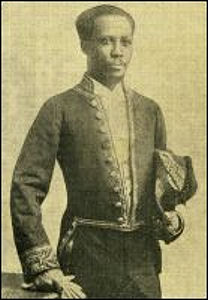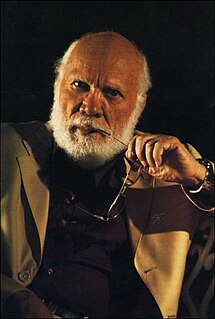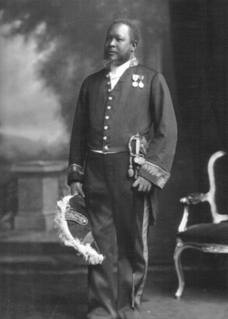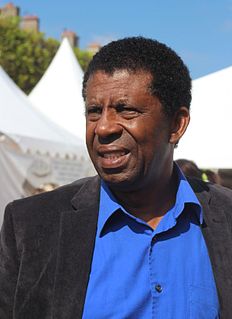 W
WJacques Stephen Alexis was a Haitian communist novelist, poet, and activist. He is best known for his novels Compère Général Soleil (1955), Les Arbres Musiciens (1957), and L'Espace d'un Cillement (1959), and for his collection of short stories, Romancero aux Etoiles (1960).
 W
WMassillon Coicou was a Haitian poet, novelist, playwright, and politician. Born in Port-au-Prince, Coicou was educated in a Catholic school for boys. He was appointed as the Haitian Chargé d'Affaires Étrangères for the Haitian Republic in France, where several of his works were published. Opposed to the presidency of Pierre Nord Alexis, Coicou publicly announced his intentions to overthrow Nord Alexis' government. He and his two brothers were subsequently executed by the President's orders on the night of 14–15 March 1908.
 W
WLouis-Philippe Dalembert is a Haitian poet and novelist. He writes in both French and Haitian creole. His works have been translated into several languages. He now divides his home between Berlin, Paris and Port-au-Prince.
 W
WFrankétienne is a Haitian writer, poet, playwright, painter, musician, activist and intellectual. He is recognized as one of Haiti's leading writers and playwrights of both French and Haitian Creole, and is "known as the father of Haitian letters". As a painter, he is known for his colorful abstract works, often emphasizing the colors blue and red. He was a candidate for the Nobel Prize in Literature in 2009, made a Commander of the Ordre des Arts et Lettres, and was named UNESCO Artist for Peace in 2010.
 W
WRoger Gaillard was a Haitian historian and novelist. Born in Port-au-Prince, Gaillard earned a philosophy degree at the University of Paris in France. He is best known for his multiple-volume chronicle of the United States' occupation of Haiti.
 W
WFernand Hibbert was a Haitian novelist and is one of the most widely read Haitian authors. He is known for his satiric and humorous novels.
 W
WLouis-Joseph Janvier was a Haitian journalist, diplomat and novelist.
 W
WDany Laferrière is a Haitian-Canadian novelist and journalist who writes in French. He was elected to seat 2 of the Académie française on 12 December 2013, and inducted in May 2015.
 W
WJosaphat-Robert Large was a Euro-Haitian-American poet, novelist and art critic. His novel Les terres entourées de larmes [Shore surrounded with tears] won the prestigious Prix littéraire des Caraïbes in 2003. He was nominated for the Haitian grand Literary Prize of 2004, together with Edwidge Danticat, René Depestre, Frankétienne, Gary Klang, Dany Laferrière and Leslie Manigat.
 W
WDimitry Elias Léger is a Haitian-American novelist, journalist, and humanitarian. Léger is best known for the acclaimed novel God Loves Haiti (2015), which the New York Times praised as "a powerful portrait of a nation in peril and the citizens who inhabit it." His writing has appeared in many magazines and newspapers. Since 2010, he has worked as a communications advisor at the United Nations around the world, including in Haiti, Switzerland, and Mali.
 W
WFrédéric Marcelin (1848–1917) was a Haitian writer and politician. Born in Port-au-Prince, Marcelin was best known for the three novels Marilisse (1903), La Vengeance de Mama (1902), and Thémistocle Epaminondas Labasterre (1901). Along with his contemporaries Fernand Hibbert and Justin Lhérisson he worked to establish a uniquely Haitian novel.
 W
WJean Metellus was a Haitian neurologist, poet, novelist and playwright.
 W
WJacques Roumain was a Haitian writer, politician, and advocate of Marxism. He is considered one of the most prominent figures in Haitian literature. The African-American poet, Langston Hughes, translated some of Roumain's works, including Gouverneurs de la Rosée.
 W
WPhilippe Thoby-Marcelin (1904–1975), was a Haitian poet, novelist, journalist, folklorist and politician.
 W
WLyonel Trouillot is a novelist and poet in French and Haitian Creole, a journalist and a professor of French and Creole literature in Port-au-Prince.
 W
WGary Victor is a Haitian writer, playwright, and scriptwriter for television and radio. His radio sketches and the uncompromising tone of his television series on the manners of the Haitian bourgeoisie provoked controversy and discussion. He also served as the General Secretary of the Senate of Haiti from 1996 to 2000.